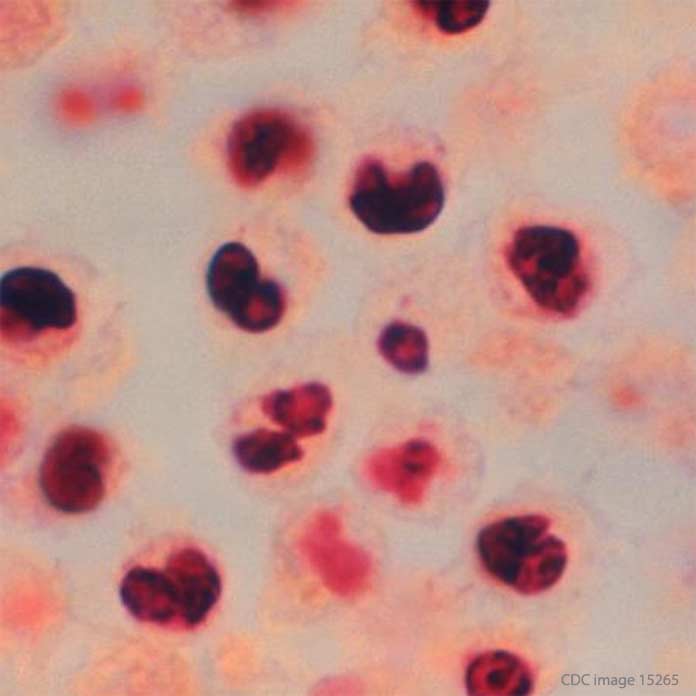September 1, 2015 Update: There are 85 inmates under observation for respiratory illness but who have not been diagnosed with Legionnaires’ disease (LD) and are being treated at SQ’s on-site medical unit.

As of Sunday, 6 inmates at San Quentin State Prison have been diagnosed with Legionnaires’ disease, a potentially fatal illness that causes pneumonia. The illness is transmitted by breathing in water mist containing Legionella bacteria. This means the water system at the prison is contaminated.
Legionnaires’ disease is a known risk in prison populations, and measures should have been taken to prevent this outbreak.
The first inmate was diagnosed on Wednesday. He had a severe case of pneumonia, and further testing found Legionella in his body. Now 5 inmates with confirmed cases are being treated at an outside hospital.
This type of pneumonia is often fatal.
Over 50 inmates have some symptoms of pneumonia, but have not been diagnosed with Legionnaires’ disease. These symptoms include:
- High fever
- Chills
- Cough (may bring up mucus and blood)
- Shortness of breath
- Muscle aches
- Headaches
- Chest pain
- Fatigue
- Loss of appetite
- Nausea
- Vomiting
- Diarrhea
- Confusion.
It is very important for any inmate diagnosed with pneumonia to have further testing done to find out if Legionella bacteria caused the illness.
The Marin County Health Department, California Department of Corrections and Rehabilitation (CDCR), and California Correctional Healthcare Services are looking for the source of the water contamination. This involves doing environmental testing on the water tank, cooling tower, in shower rooms and at other water sources in the prison. Once the source is found, we will be able to determine what parties are legally responsible (liable) for the outbreak.
San Quentin receives its water supply from the Marin County Municipal Water District and stores the water in a three-million gallon tank on-site.